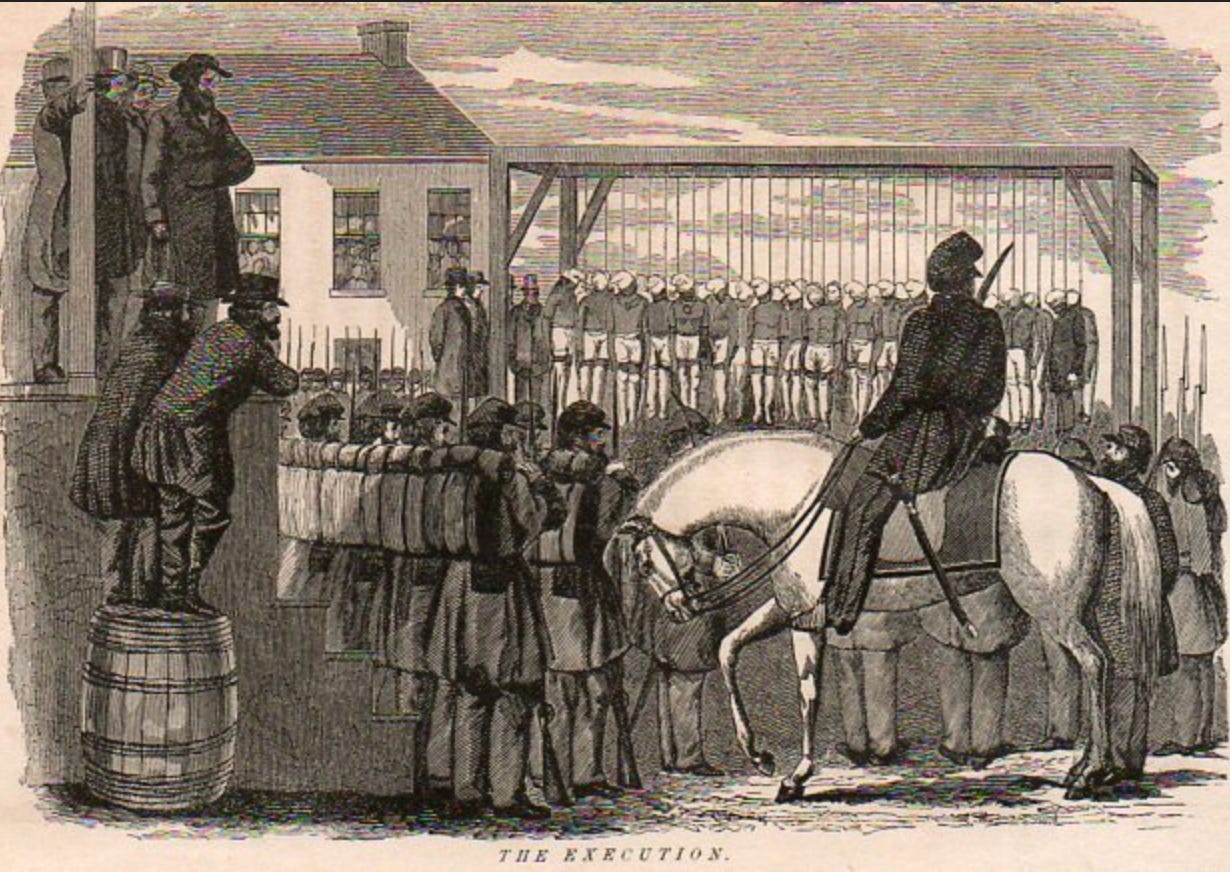A System of Domination is Nothing to Celebrate
A Republic is a State [of Domination]
July 2, 2026, will mark 250 years since the British colonials voted for American independence from the British Empire. 2026 will mark two hundred fifty years since the Declaration of Independence was signed on July 4, 1776. September 17, 2027 will mark two-hundred and forty years since 39 delegates signed the U.S. Constitution in 1787. The end result was the current U.S. Constitution that was ratified in 1789.
Elizabeth Willing Powell is said to have posed a question to Benjamin Franklin on the day the Constitutional Convention concluded: "Well, Doctor, what have we got, a republic or a monarchy?" Franklin is said to have replied, “A republic if you can keep it.” Using my Domination Translator, his response is accurately re-expressed as, “A state [of domination] if you can keep it.”
What will the American people be commemorating as they celebrate the Declaration of Independence? From one vantage point provided by Franklin’s remark, 2026 will be a commemoration of their imperial republic, which has lasted for two and a half centuries. But to provide an accurate insight into the upcoming celebration, we ought to ask, “What is a republic?”
A Websters New Collegiate Dictionary (1956) says it is “Based on Webster’s New International Dictionary,” 2nd Ed., and it defines a “republic” as “A state in which the sovereign power resides in a certain body of the people (the electorate) and is exercised by representatives elected by, and responsible to them [that body of the people]; also, the form of government of such a state.” (emphasis added)
Given that a republic is a term for “a state” we must ask, “What is a political state?” What kind of system is a “state”? In The State (The Bobs-Merrill Co., 1914), Franz Oppenheimer declares that “The State . . . is a social institution, forced by a victorious [dominating] group of men on a defeated group [on the dominated], with the sole purpose of regulating the dominion [domination] of the victorious group over the vanquished [dominated], and securing itself against revolt from within and attacks from abroad.”
In Oppenheimer’s estimation, “this dominion [domination] had no other purpose than the economic exploitation of the vanquished [dominated] by the victors [dominators].”
German sociologist Max Weber expressed some helpful points about “the state” in his essay “Politics as a Vocation.” “Today [1919] the relation between the state and violence is an especially intimate one,” he continues. He expanded on this theme as follows:
“Today . . . we have to say that a state is a human community that (successfully) claims the monopoly of the legitimate use of physical force within a given territory. Note that ‘territory’ is one of the characteristics of the state. . . The state is considered the sole source of the ‘right’ to use violence. Hence ‘politics’ for us means striving to share power or striving to influence the distribution of power, either among states or among groups within a state.”
Weber does not stop there, however. He goes on to use the word “domination” to explain what he means by the word “power.”
“Like the political institutions historically proceeding it, the state is a relation of men dominating men, a relation supported by means of legitimate (i.e. considered to be legitimate) violence. If the state [of domination] is to exist, the dominated must obey the authority claimed by the powers that be.”
Weber then asks, “Upon what inner justifications and upon what external means does this domination rest?” He continues by explaining “three inner justifications, hence basic legitimations of domination.” (original emphasis)
When people think of the Liberty Bell (“Let Freedom Ring”) it is highly unlikely they think of the society of the United States as being premised upon a claimed right of domination over and against everyone and everything within the geopolitical boundaries over which it asserts absolute control. And yet it is so premised, especially in relation to the original Native nations and peoples of Turtle Island.
That assertion of a right of dominating control relative to Native peoples is called “the plenary power of Congress,” and it reminds me of a phrase used by U.S. Supreme Court Justice Joseph Story, “plenum [full] et [and] utile [useful] dominium [domination].”
So, for those of us who are the descendants of free and independent Native nations and peoples, I have to say: “It makes zero sense for us to celebrate being robbed of our free and spiritual way of life by more than two centuries of the U.S. government’s imperial domination of our existence!”
The phrase “Manifest Destiny” is the phrase applied to the belief that the United States was destined by the “God” of the Bible to extend a system of domination across the continent called “North America” and indeed across the entire planet, and call it "the Spirit of Liberty.” In the papal bull of May 4, 1493, that “God” is referred to as “Him, from whom empires and dominations and all good things proceed [issue forth].”
Historian Richard Van Alstyne, in The Rising American Empire (1962), quotes Julius W. Pratt’s America’s Colonial Experiment. How the United States gained, governed, and in part gave away a Colonial Empire (1950): “In reality, the extension of American rule [domination] over Indian tribes and their lands was imperialism—not recognized as such only because the Indians were [by that time] so few in number as to be virtually swallowed.” To this Van Alstyne adds: “Here it might be pointed out that American foreign policy has a vocabulary all its own, consciously—even ostentatiously—side-stepping the use of terms that would even hint at aggression or imperial domination.”
He continues: “Parrot-like repetition of these abstractions and other generalizations [of American foreign policy vocabulary] produces an emotional reflex which assumes that American diplomacy is ‘different’, purer, morally better than the diplomacy of other powers.”
And, finally, Van Alstye astutely notes: “Furthermore, it is an interesting point, I think, that American diplomacy shows a preference for a term that is commonly identified with theological dogma. The Monroe Doctrine has the additional authority of [Church] Canon Law behind it. To carry the analogy further, the United States assumes unto itself a function of the medieval Papacy: the prerogative of infallibility.” This stems from a theology of domination.
He adds: “The quotation, ‘wheresoever the Roman conquers [dominates], he inhabits’, which is incorporated into the title of this first chapter, is from the Stoic philosopher Seneca. I culled it from the pages of one of the greatest of historians, Edward Gibbon, in the opinion that it applies with equal truth to the American nation.”
“The idea that America—the ‘New World’—would be conquered [dominated] and inhabited by people of English stock was native to the empire builders of Elizabethan England and bred into the minds of the early immigrants to Virginia and Massachusetts Bay. . .” He then elaborates:
“Expounded with particular force and clarity by the New England Puritans, who regarded themselves as founders of a new Israel in the North American wilderness, the doctrine of the two sphere became a fixation in the American mind prerequisite to the growth of nationalism. New England, which was ‘God’s American Israel’ according to its Calvinist divines [preachers], assumed from the outset an attitude of political independence toward the mother country [England].”
All this and more will be celebrated with great fanfare in the next couple of years, with the commemorations of the Declaration of Independence and the U.S. Constitution. Let us conclude, then, with one last quote from Van Alstyne:
“ . . . the United States thus becomes by its very essence an expanding imperial power. It is a creature of the classical Roman-British tradition. It was conceived as an empire; and its evolution from a group of small, disunited English colonies strung out on a long coastline to a world power with commitments on every sea and in every continent, has been a characteristically imperial type of growth.”
The Native nations and peoples historically and currently subjected to the American assumption of a right of domination cannot help but see its historical and present day trajectory as profoundly problematic. This is especially so since it now appears that the American empire is helping to corral homo sapiens into an algorithmic Artificial Intelligence system of bio-digital-nanotech-subjugation premised on a global claim of a right of domination.




Greetings Steven, here is an article thought u would find interesting considering they still continue to use the word “merciless savages” in the current Constitution . It was recently pointed out in the show Democracy Now in an article which I could not find around this past July 4rth.
And as a result I bought a T-Shirt from an Original Native ally who sells them working with Max Wilber protecting Thacker Pass. I would put up the pic of me in it but this doesn’t allow me to do it. Thank you as always for your work!
Thank you. Steve. Yes, we owe Max Weber's precious, clear insights a lot. I forgot. It is shocking but healing like any true strong medicine. To read loudly, I would suggest, loudly and slowly. In theatres. To consent to such a program... wow. One wonders, really, who is man. Who is white man. I turn around, covering my head and face, in shame.